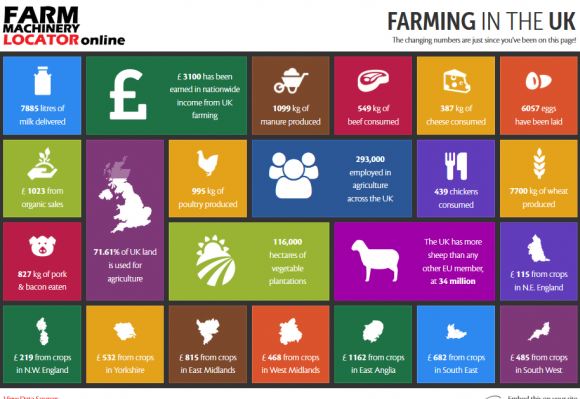-
About
- Our Work
- Get Involved
- Stay Updated

The agricultural industry is a huge part of the economy and this Guide to Farming in the UK demonstrates how quickly the figures rise on a daily basis.
Evident from the guide, there are many career paths if you wish to gain employment in the industry, from working with livestock, through to growing crops or even branching out and exploring a distinct niche area such as organic farming.
How Do I Enter the Industry?
There are many routes into farming and as a first step you can apply directly with no formal qualifications. As a farm worker you should be prepared to undertake strenuous physical labour and to work hours outside the norm of 9am to 5pm. Many farming days start early and will be driven largely by the seasons. A farm worker with over six months’ experience can expect to earn in the region of £13,000 per annum.
Many farm workers choose to gain qualifications and will opt for a vocational course at one of the agricultural colleges around the UK. These offer further education certification for farm workers and you can also take your specialization further if you wish to work with livestock or in a particular field of farming. You can also progress to take HND qualifications or even an agricultural degree. This opens the door to a range of jobs including farm manager, rural practice surveyor and soil scientist. However, it is wise to get some on the job work experience alongside your degree as this will give you a better chance of finding full-time employment once you qualify.
Salaries vary considerably depending on your career path, with a trainee farm manager starting out at around £18,000 but increasing to above £70,000 per annum once you have at least 10 years’ experience.
Is Agriculture a Competitive Field?
There are many jobs available in farming and currently just under 300,000 people are employed in agriculture across the UK. However, the more practical experience you have of working with animals or on the land, the better your chance of employment success. Consider volunteering while you are still at school to gain exposure to the industry and to discover whether it is a field of work which you will enjoy. While it entails more physical work than employment in an office, it has the benefit of not confining you to a desk. However, only you can gauge whether it will be the right environment for you long term, especially when you factor in the variable working hours.Progression within your career will depend on how large an establishment you work for and you may need to move to farms which specialise if you want to gain relevant experience, for example in dairy or arable farming. Crop production also varies regionally around the country so you may need to relocate if you have a particular interest.
One of the big attractions of working in agriculture is the draw of working outdoors and not being confined by a business environment. This naturally also has its drawbacks, such as seasonal highs and lows in employment and having to work in all weathers. Farming is therefore a job which you need to feel very suited to if you want to pursue it long term and employers will want to see you demonstrate that commitment before they offer you a job. Therefore, as outlined above, do as much work experience as you can whatever path you want to follow. That way you will have given yourself every opportunity to gain entry to and ultimately to flourish in this demanding field.
Have a look at this interesting farming statitics infographic https://www.farmmachinerylocator.co.uk/farming-data-in-the-uk/About the author
Related Posts
Comments
No comments made yet. Be the first to submit a commentBy accepting you will be accessing a service provided by a third-party external to https://archive.ypard.net/
Get in touch
Email: [email protected]
YPARD Global Coordination UnitHosted by AGRIDEA and the Czech University of Life Sciences Prague
Lausanne, Switzerland and Prague, Czech Republic - Our Work

